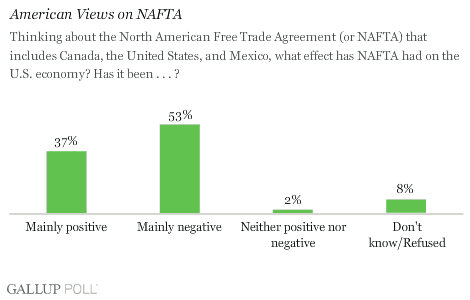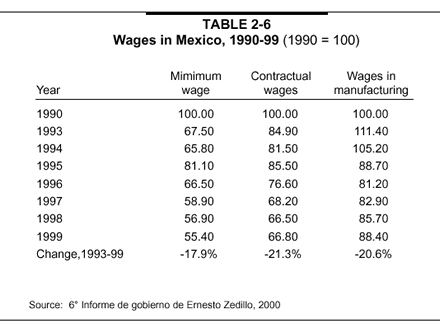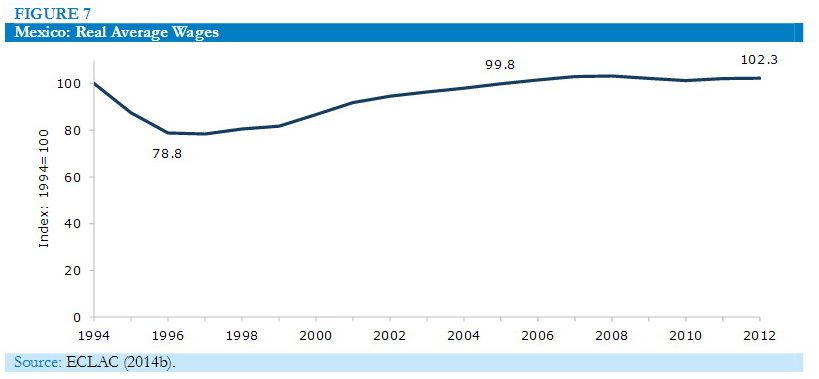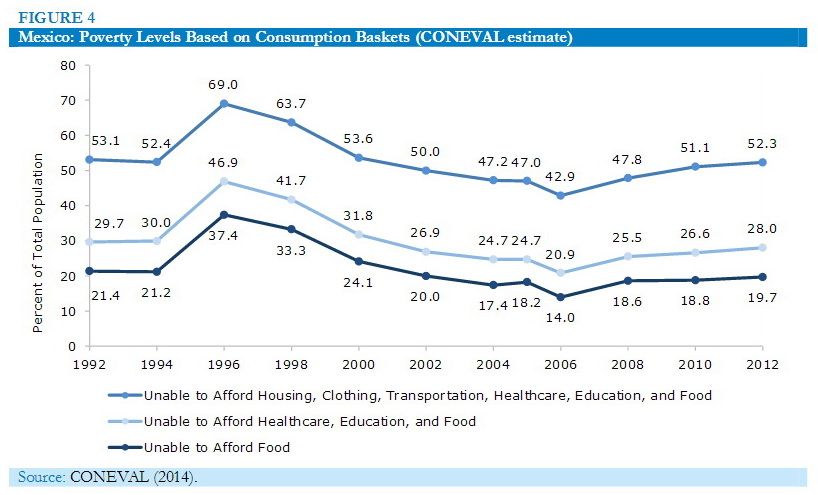https://www.socialeurope.eu/2016/08/hal ... cantilism/
I dunno if 18 months is enough to go by but it looks hopeful. I hope we can start reversing globalization. People seems to have had enough of that shit by now. Trump, the republican candiate shits all over it, which is saying something considering how much they like to huff globalist neoliberal cock, turns out that tune isn't working anymore, the working class aren't seeing anything but shit trickling down.The process of globalization is in retreat. The latest victim of the global economic slowdown is international trade: after tumultuous growth in the last 26 years, disrupted only temporarily by the financial crisis of 2008-2009, the estimated volume of goods and services traded globally has been stalled for more than 18 months around $13 trillion. So long a period of stasis has never been experienced by the world economy before. Of course, there have been some slowdowns in the expansion of trade due to recessions or severe regional crises, but acceleration in key areas has more than offset the decline recorded elsewhere.
For example, after the international collapse in trade of 2009, growth rates in developed countries halved, but the volumes globally traded continued to expand, sustained by the boom in emerging economies. The observable data (taken from CBP Netherlands Bureau for Economic policy analysis database, probably the most accurate data repository publicly available) clearly highlights how emerging economies have suffered more from the collapse in trade post-Lehman Brothers, and how the same countries have quickly recovered lost ground, increasing their weight in the global market.
Among the emerging economies, China and India in particular have taken the lion’s share, while the continuing Eurozone crisis has reduced the influence of the old continent in the global market. According to empirical evidence, China, Taiwan and India have multiplied by a factor of four their trading volumes from a total of $1 trillion in 2000 to over $3.5 trillion in 2012; the first overtaking by the emerging Asian economies at the expense of the US took place in 2002, while in 2012 the same economies surpassed the Eurozone as the leading area in international trade. Conversely, the stagnation of the Euro area from 2011 has been spectacular, mainly due to the collapse of imports in European peripheral countries; the peak level of $3.7 trillion in trading volumes was reached in 2007 and never fully recovered.
The specific reasons for this prolonged stalemate are complex and not fully understood: undoubtedly, the collapse in oil and commodities prices has played a key role. Independent studies from the Centre for Economic Policy Research even show that the decline in the three main oil products (gasoline, diesel and kerosene) accounted for more than half of the drop in global trade volumes between October 2014 and June 2015. A certain weight can be attributed to the appreciation of the dollar, whose value increased by about 15% in 20 months. Indeed, a stronger dollar on the foreign exchange market implies that all transactions taking place in currencies other than the USD are accounted for with a lower value in dollar terms.
However, these factors are not sufficient to explain the persistent stasis in global trade during 2016, when the price of raw materials has stopped its descent, recovering some of its previous value and the dollar’s appreciation has gone into reverse, owing to the radical change of FED monetary policy, while the post-Brexit market turmoil has not impacted so much.
Recent research from World Trade Organization (WTO), World Economic Forum and independent advisors has highlighted the growing impact of protectionist policies and of national interests on international trade. The de-globalization meme is no longer just a “political” concept; with the halt in trade growth it becomes a fact, confirmed by official data of the world’s supranational organizations. Of over 1000 economic policy measures monitored by the WTO during 2014-2015, only 30% were aimed at further liberalization and de-regulation of trade, while 70% of those enacted could be interpreted as regulatory restrictions on free trade. In the first four months of 2016, more than 150 protectionist measures have been launched, compared to 50 in 2010; a surprisingly high proportion (81%) is attributable to the governments of the G20, which contribute more than 2/3 of global trade.
Among the most commonly restrictive measures implemented by the governments of developed countries: government bailouts of domestic industry (emblematic here is still the US auto industry bailout by the Bush administration in 2008) along with financial assistance programs and subsidized credit. G20 countries have made little use of classical instruments such as subsidies or import tariffs, but it is increasingly widespread to see requests to foreign investors to transfer their manufacturing process locally. In other words, in recent years foreign direct investments that impact on the local economy are prevailing rather than more traditional trading agreements. For corporations, this is a return to the past, as they have to deal with more fragmented and regionalized markets.
However, even this new course in the implementation of trade policies by the major industrialized nations could still be considered more as an effect than a cause of the halt in growth of international trade. In a context where the cake to be shared (the volumes of traded goods and services) is no longer growing, a new awareness is spreading among the big world economy players: a greater market share for ones own exports can only be achieved by reducing other countries’ quota. Currency wars and competitive devaluations should be natural consequences in this scenario of neo- mercantilism: indeed we are currently witness to the four major world economic powers – US, China, Japan and the Eurozone – being involved in rounds of strong monetary expansion with the explicit purpose of weakening their currencies and of igniting export-driven recoveries that may be short-lived.
In other words, the global economic system is adapting to a situation of persistently weak growth, where the profitability of investments is low (along with interest rates and inflation) while the incentives to globalization and labor offshoring are gradually reducing.
The analysis of the overall phenomenon thus leads us to the key question: why is the global economy slowing down so dramatically? A complex explanation – however partial – leads one to the impact of demographic factors (the falling growth rates of the world’s population, rapid aging in developed countries) and of the real cost of energy (the best resources have already been exploited, leaving those of the poorest quality and most difficult to extract). Either way, the future economy appears more and more “local”. Accordingly, the Eurozone’s fragile recovery should become less and less dependent on export growth and more focused on the revival of domestic demand; not by chance in countries like Italy the net contribution of exports to GDP growth is already negative while the government is busily studying various options of “fiscal stimuli” to the real economy.
The poor of britain also had enough with free trade stealing all the jerbs and are leaving the EU, giving it ood solid kick in the nuts that will hopefully force it to reconsider its goal of free trade and movement of capital uber alles nomatter the costs. Loads of populist parties all over europe are growing because of globalization leaving poor people in it's wake with no future. Perhaps after all, it'll be globalization that gets the short end of the stick.
Maybe it's a pie in the sky article but one must have hope for a better future.
These kinds of articles below I have noticed are becoming ever more prevalent and gaining traction, and politics are changing their tune slowly, they will either go populist fascism or like Corbyn in the UK try and revert to proper leftist policies. Let's hope the latter wins, but either way the current system that just keeps on licking the ass of rich people is gonna have to go, by any means required.
https://www.theguardian.com/books/2016/ ... ge-monbiot







